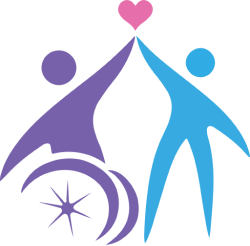Information and Referral
Available to any individual in the community who has a disability related question, concern or need
Advocacy
ACCESS works to assist individuals to communicate their needs to obtain services and support.
Peer Support
Staff and trained volunteers with disabilities assist consumers with reaching independent living goals.
Skills Training
Individualized and group training in many skill areas
Transition Services
Specialized help in areas of community and post secondary transition
Youth Services
Access provides a wide variety of classes and services specifically for youth 18 and under
Assistive Technology
Over 1,000 devices can be tried, and many can by borrowed, free of charge for up to three weeks
Assessibility Assessment
Home safety, workplace accessibility, and ADA compliance assessments to improve physical and programmatic accessibility.
Access to Independence, Inc. is a non-profit, consumer controlled Independent Living Center (ILC) that provides advocacy, resources, and services to people of all ages with all types of disabilities in Dane, Columbia, Green, and Dodge counties in south-central Wisconsin. ILC's are a nationwide network of consumer controlled disability resource centers, where the majority of board and staff are people with disabilities. Through our Independent Living (IL) Philosophy, we help people develop the tools and skills to make informed choice for themselves and work to increase the choices available to people with disabilities. We are a part of a network of centers across the nation and one of the eight centers in Wisconsin. All centers share the Independent Living Philosophy and focus on providing specific services that help people with disabilities live as independently as they choose.
53714
Speech and Language Therapy: Receptive and Expressive Language, Augmentative and Alternative Communication, Feeding and Swallowing, Auditory Processing, Apraxia of Speech
Occupational Therapy: Fine Motor Skills, Sensory Integration Skills, Handwriting, Self-Care Skills, Emotional Regulation, Activities of Daily Living
Physical Therapy: Gross Motor Coordination, Develop Flexibility and Range of Motion, Improve Balance, Reduce Pain, Pelvic Floor Therapy
Aspire's caring and experienced therapists listen and take the time to work with you, meeting you where you are, and collaborating on ideas and solutions, to uniquely meet the needs of your child. Each session will be family-focused, including you in each step of the evaluation and therapy process, so that you are equipped to continue progress beyond the session. Best of all we make it fun!
We serve in a variety of settings including our clinics, virtually, and at some private schools in the Greater Madison area.
53593
There are a broad range of services offered through the CLTS Waiver Program to meet the needs and goals of your child and your family. Each plan is individualized and a CLTS case manager will work with children and their families to identify needs and goals that will help a child be an active participant in their home and community.
53711
Wisconsin's Children's Long-Term Support (CLTS) Waiver Program (including the Katie Beckett Program and the Children's Community Options Program) makes Medicaid funding available to support children with substantial limitations due to developmental, physical, or severe emotional disabilities who are living at home or in the community. Funding can be used to support a range of services based on an assessment of the needs of the child and his or her family.
El Programa de Exención de Apoyo a Largo Plazo para Niños (CLTS) de Wisconsin (que incluye el Programa Katie Beckett y el Programa de Opciones Comunitarias para Niños) hace que los fondos de Medicaid estén disponibles para apoyar a los niños con limitaciones sustanciales debido a discapacidades del desarrollo, físicas o emocionales graves que viven en el hogar o en la comunidad. La financiación se puede utilizar para apoyar una variedad de servicios basados en una evaluación de las necesidades del niño y su familia.
53704
People sometimes assume that people with communication-related disabilities don't want to communicate or can't communicate. This assumption can prevent people from getting the supports they need. But everybody communicates - whether using language, behavior, gestures, facial expressions, sounds, or other means.
This toolkit, created by the Autistic Self Advocacy Network, is designed to help you access communication evaluations and tools for effective communication for people with communication-related developmental disabilities. These may include autism, apraxia, cerebral palsy, and other developmental disabilities that affect communication.
